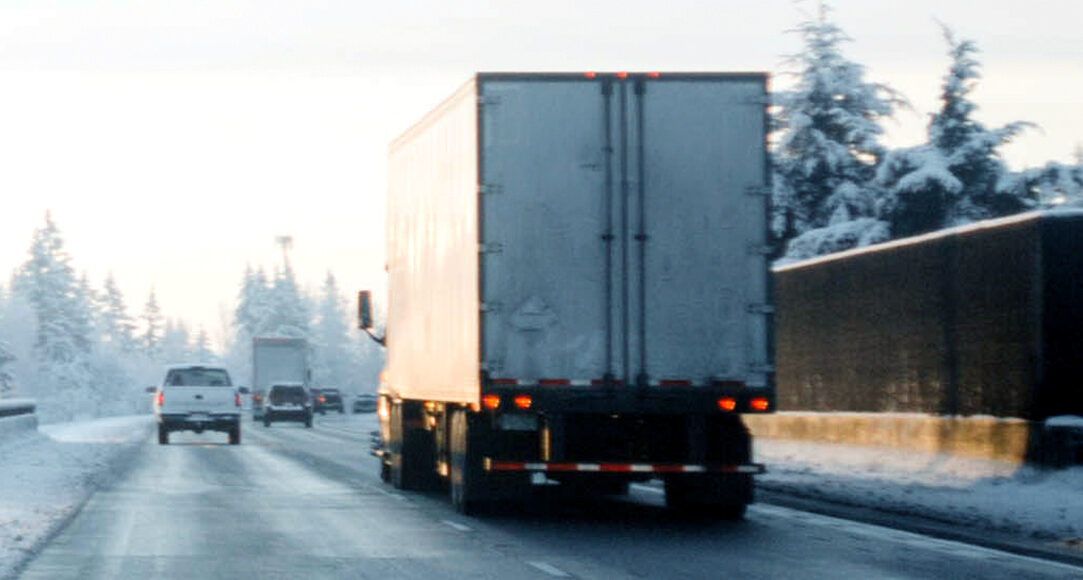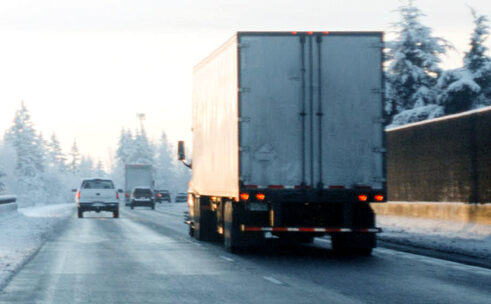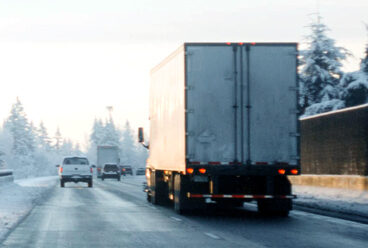WINTER WEATHER
The recent cold snap served as a stark reminder of the importance of being adequately prepared for winter weather, particularly for truckers navigating the challenging conditions of the trucking logistics industry. Failing to equip yourself for the harsh winter conditions can be perilous. Below is a concise checklist to ensure truck drivers are ready for winter’s challenges on the road.
Winter Weather Preparedness Checklist for Trucking Logistics
- Extra Clothing Layers & Gloves
- Bundle up with additional clothing layers to stay warm during long hauls.
- Ensure truck drivers keep their hands protected with insulated gloves.
- Flashlights and Batteries
- Equip your truck with reliable flashlights and spare batteries to navigate through dark and snowy conditions during long hauls.
- Bags of Sand or Salt
- Carry bags of sand or salt in your truck to enhance traction on icy surfaces, providing better control over the commercial vehicle.
- Snow Scrapers & Brushes
- Clearing the commercial vehicle of snow and ice is crucial for visibility and safety. Keep snow scrapers and brushes handy during winter journeys.
- Blankets
- Store extra blankets in your truck to stay warm in case of prolonged exposure to the cold while parked or during unexpected delays.
- Windshield Fluid
- Use winter-grade windshield fluid to prevent freezing and maintain clear visibility, ensuring safe driving during winter conditions.
- Jumper Cables
- Always have jumper cables on hand for emergency situations, such as truck’s battery failing during winter trips.
- Food & Beverages
- Pack non-perishable snacks and beverages to sustain yourself truck drivers during unexpected delays or emergencies on the road.
Winter Driving Tips for Truckers
- Drive at a slower speed to allow more time for reactions in challenging winter conditions.
- Maintain a firm grip on the wheel for better control of the commercial vehicle.
- Increase following distance to avoid collisions in icy or snowy conditions.
- Exercise caution on bridges and overpasses, as they may freeze faster.
- Be wary of black ice, which may not be immediately visible on the road.
- Check mirrors for frost, and clear them for optimal visibility.
- Accelerate and brake gradually to prevent skidding on slippery roads.
- If conditions worsen, consider pulling over and waiting it out for safety.
- Drive defensively, anticipating potential hazards, and prioritize reaching the destination safely.
Railroad Crossing Safety in the Trucking Logistics Industry
In 2022, the US witnessed 2,199 collisions at railroad crossings, emphasizing the critical need for vigilance in the trucking logistics industry. With over 200,000 highway-rail grade crossings nationwide, truck drivers must understand how to navigate them safely.
Railroad Crossing Safety Tips for Truckers
- Listen and Look
- Before crossing, carefully listen and look in both directions for approaching trains.
- Avoid Shifting Gears
- Avoid shifting gears while crossing the tracks to ensure a smooth and safe passage.
- Travel at a Safe Speed
- Maintain a speed that allows the truck to stop before reaching the railroad tracks, promoting safe crossings.
- Cross with Certainty
- Cross the tracks only when certain that the path is clear, minimizing the risk of collisions.
Additionally, be cautious of trains reversing through the roadway. Neglecting this risk can lead to severe consequences, as evidenced by a driver colliding with a reversing train, causing severe injuries to the railroad employees in the caboose and resulting in a $2 million settlement. Staying vigilant and adhering to safety protocols at railroad crossings can significantly reduce the risk of accidents, safeguarding lives in the trucking logistics industry.
Categories: Trucking


